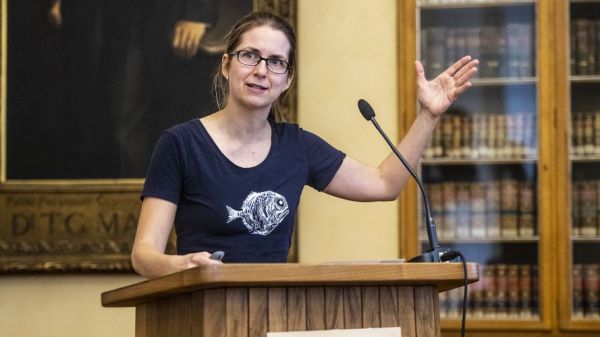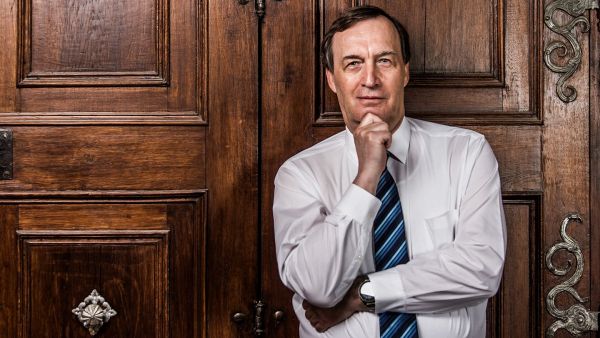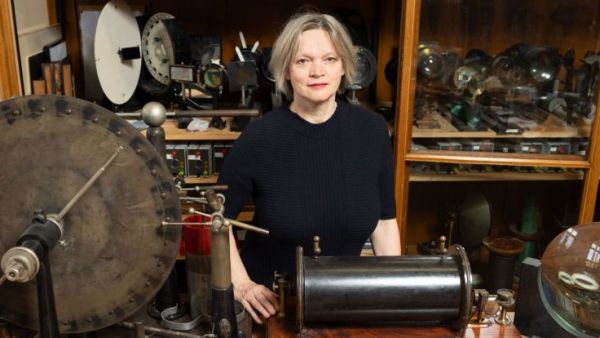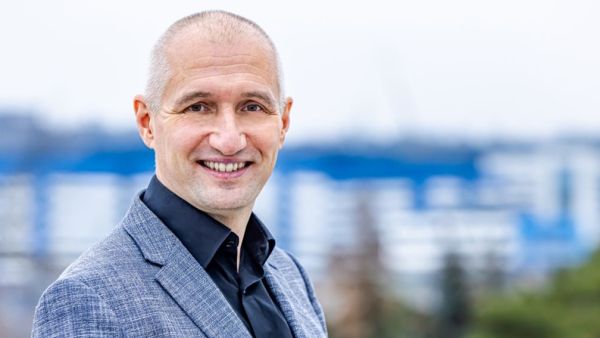Ethiopia is a unique opportunity – even for Charles University
Kryštof Verner and his team have been conducting field research in Ethiopia for more than ten years. Although his domain is geological and hydrogeological mapping, he knows that the problems of Ethiopia must be viewed comprehensively.
ERC grants: More funding for science in Czechia
On Wednesday, November 19, the National Information Day on ERC Grants took place at the Carolinum. Its aim was to present the mission of the European Research Council (ERC), which organizes the most prestigious European individual grant competitions to support top-level research.
Jiří Hana: We don’t want to replace journalists – we want to help them
MathPhys alumnus and lecturer Jiří Hana co-founded the company Geneea. It makes language processing technologies accessible to companies that work with large volumes of text or recordings, including media outlets.
Data science: Using data analysis to better understand the world
Data science is sometimes called the most interesting profession of the 21st century. Its bright future is confirmed by Irena Holubová of the Faculty of Mathematics and Physics at CU and Profinit’s Dominik Matula.
Jakub Drápal’s ERC grant will focus on sentencing across Europe
For the second time in the past year, a project developed by researchers at CU’s Faculty of Law has received grant support from the European Research Council. The ERC Starting Grant, worth €1.5 million, goes to Jakub Drápal.
Andrea Gálisová awarded ERC funding to develop a drug delivery platform
CU’s First Faculty of Medicine is receiving its first prestigious European Research Council Starting Grant. It was awarded to Slovak biophysicist Andrea Gálisová who researches extracellular vesicles. These can deliver therapy directly to cells.
Nobel laureate Ambros: Biology is always surprising
Victor Ambros, awarded the Nobel Prize in Physiology or Medicine in 2024, is renowned for his pioneering discovery of microRNAs. He has long collaborated with his wife, Candy Lee Ambros, his co-researcher for decades. Forum magazine had the opportunity to ask both a few questions.
Joanna Wawrzyniak: Memory studies is about the future
Memory studies explores how societies relate to the past and how the meanings of that past evolve in the present. It takes a deeply interdisciplinary approach, and reveals unexpected implications for our present as well as future.
Professor Weiss: When climate brings down civilizations
Professor Harvey Weiss of Yale University co-organized an international Egyptology conference in Prague. He is known for his pioneering work in environmental archaeology and for advancing the theory that mega-droughts played a central role in the collapse of ancient civilizations.
Čapková awarded top ERC Grant to study inclusive history
Kateřina Čapková from Charles University’s Faculty of Arts will explore the inclusive history of Central and Eastern Europe—examining the past through the perspectives of Roma, Jews, and people with disabilities—thanks to an Advanced ERC grant.
Primus Day: Building a daring scientific community
More than 160 researchers have received support through the ground-breaking Primus programme ( launched in 2017) enabling them to establish independent labs focused on innovative frontier research.
Hemminki awarded honorary degree for cancer research
Kari Jussi Hemminki is a renowned researcher who has overseen ground-breaking work at the Faculty of Medicine in Pilsen. In less than five years in this role, Professor Hemminki and his team published over 100 impactful publications.
CU at the forefront of European AI research
“Our main goal is to produce a language model that will compete with existing models and, moreover, will work very well for all European languages,” says Professor Jan Hajič from the Institute of Formal and Applied Linguistics at CU.
Heczková: Women scientists last century “no saints”
"Academics of the 20th century were personalities. We should be inspired by them and support originality and the search for one's own path, because it leads to knowledge and great ideas," says Libuše Heczková from the Faculty of Arts.
Kalina: Global collaboration boosts medical progress
Connecting experts in flow cytometry, development and licensing of diagnostic methods, including in the field of leukaemia, are among the main tasks of the internationally successful EuroFlow consortium.
-
FORUM EN 14 2025/26
Readers of FORUM EN can read the latest issue or older ones in our complete online archive.
-
FORUM 72 4/2025
Pro čtenáře FORUM nabízíme k prolistování kompletní archiv čísel ve formátu PDF. Těšíme se na Vaše podněty pro další témata našeho časopisu.































